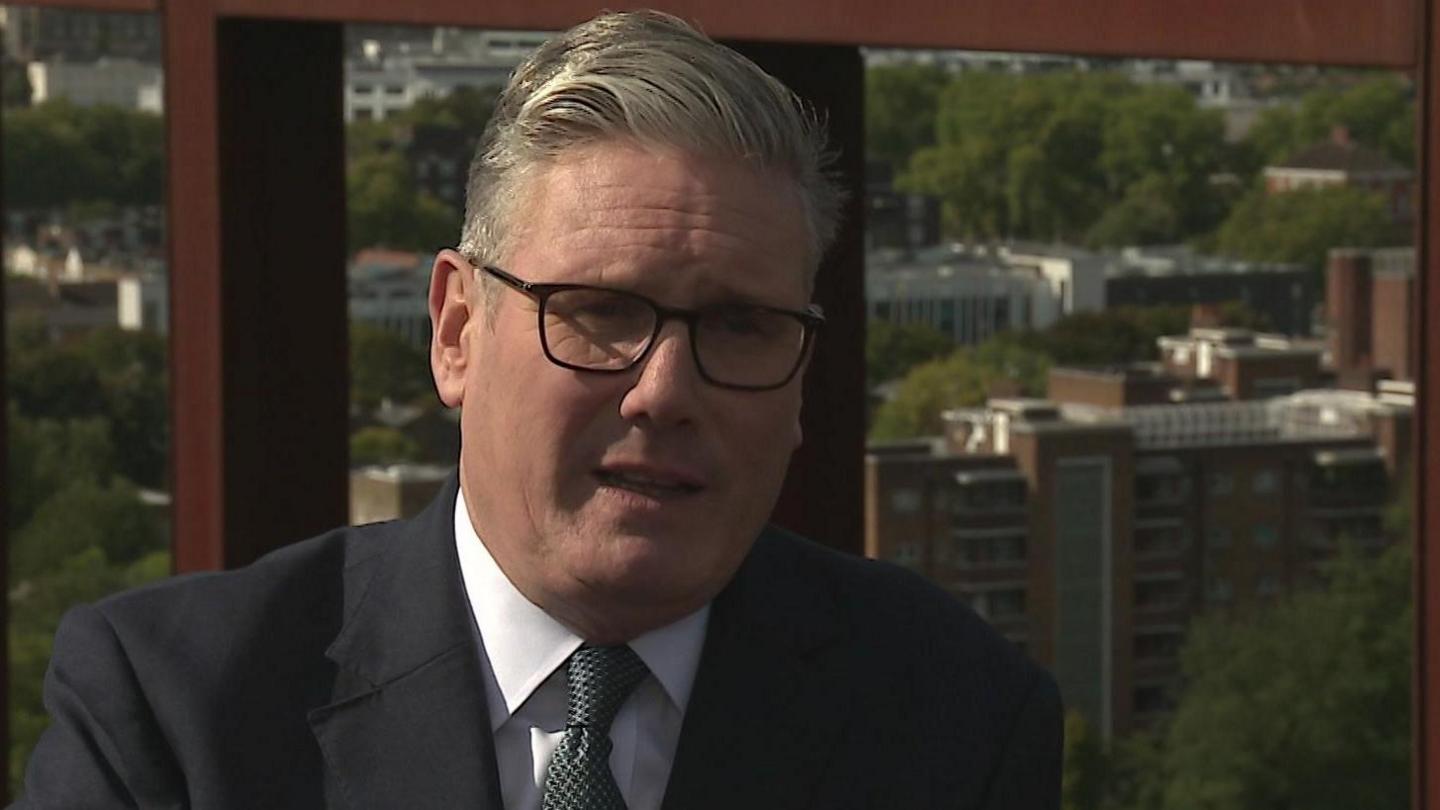In conversation with Prime Minister, Sir Keir Starmer

Sir Keir Starmer discussed issues including anti-social behaviour and devolution
- Published
BBC South's political editor Peter Henley has been speaking to party leaders, or deputy leaders, during the autumn party conferences.
They have been discussing some of the key issues facing the south of England and explain what they plan to do.
Sir Keir Starmer, prime minister and leader of the Labour Party, has talked about anti-social behaviour in Southampton and the prospect of regional devolution for the south of England.
PH: There's piece running on BBC News at the moment about anti-social behaviour in Southampton.
Children aged 13 and 14 have been terrorising parts of the city and the mother of one says she really wants the police to act more toughly.
Do you think a change in legislation is needed?
KS: Let me be really clear, what we're seeing there is completely unacceptable.
That shouldn't be happening in any community and we should all be concerned about that - and I am concerned.
What we need to have, in my view, is more neighbourhood police, which is why we've made that an absolute focus.
People need to know in their neighbourhood that the police are present, know what's going on and know some of the characters, frankly, involved.
We've introduced Respect Orders, which are a much stronger form of order with real teeth in relation to what people are doing.
But we have to crack down on this. I completely agree and we're doing everything we can.
PH: Should people be scared of the police?
KS: Of course they shouldn't be scared of the police.
PH: That's what the parents want. They say these children will only listen to police who get tougher.
KS: Firstly, all our communities need to be reassured by our police.
The vast majority of people are reassured when they see neighbourhood police in their area, particularly if it's the same officers that they can get to know - officers who actually know where the trouble's really happening, because that's what neighbourhood policing is all about.
And for those that are perpetrating crimes or anti-social behaviour, of course they should be fearful that they're going to feel the full force of the law.
PH: But your solution announced is nicer parks and fewer boarded up shops - that sounds soft.
KS: Well hang on, what we're announcing is our Pride in Place money. This is going to places in the south that have, in my view, been overlooked and it's 10 years worth of funding.
But most important of all - just to meet your challenge - it will be local people who control what happens to the money.
So in the past what you've had is areas going cap in hand to Whitehall and somebody in Whitehall deciding what would happen in their community.
I think that's wrong. I think those with skin in the game know their community best.
So we're giving control to them so they will decide 'what will make the biggest difference in our community?'.
I think that would be welcome because people do have a pride in the place where they live. They want to know that the government understands that and will come up alongside them.
PH: Part of this process of sending power down to a lower level is creating mayors. Are you looking forward to a lot more Andy Burnhams in the south of England?
KS: Well, I'm looking forward to local representatives who will represent their patch. This is a good thing. Everyone should have a good, loud advocate for their area. I'm very much in favour of this.
PH: ...even if they are elected for Reform UK?
KS: Well, look, obviously there's a huge divide in our politics now between national renewal, which is the project of this government bringing our communities together and making sure that everyone in this country can share in the patriotism that I believe in or the politics of grievance and the toxic division that goes with Reform.
It was only a few weeks ago they were giving a platform at their conference to somebody who was trying to link vaccines to cancer.
Imagine Reform being in charge of a vaccine roll out project at a vital time for our nation.
So there's a fundamental division in politics now - a binary choice, and we've got to decide which path we want to go down.
I say patriotic national renewal is what this country needs - taking everyone with us on this journey - not the politics of grievance.
Get in touch
Do you have a story BBC Oxfordshire should cover?